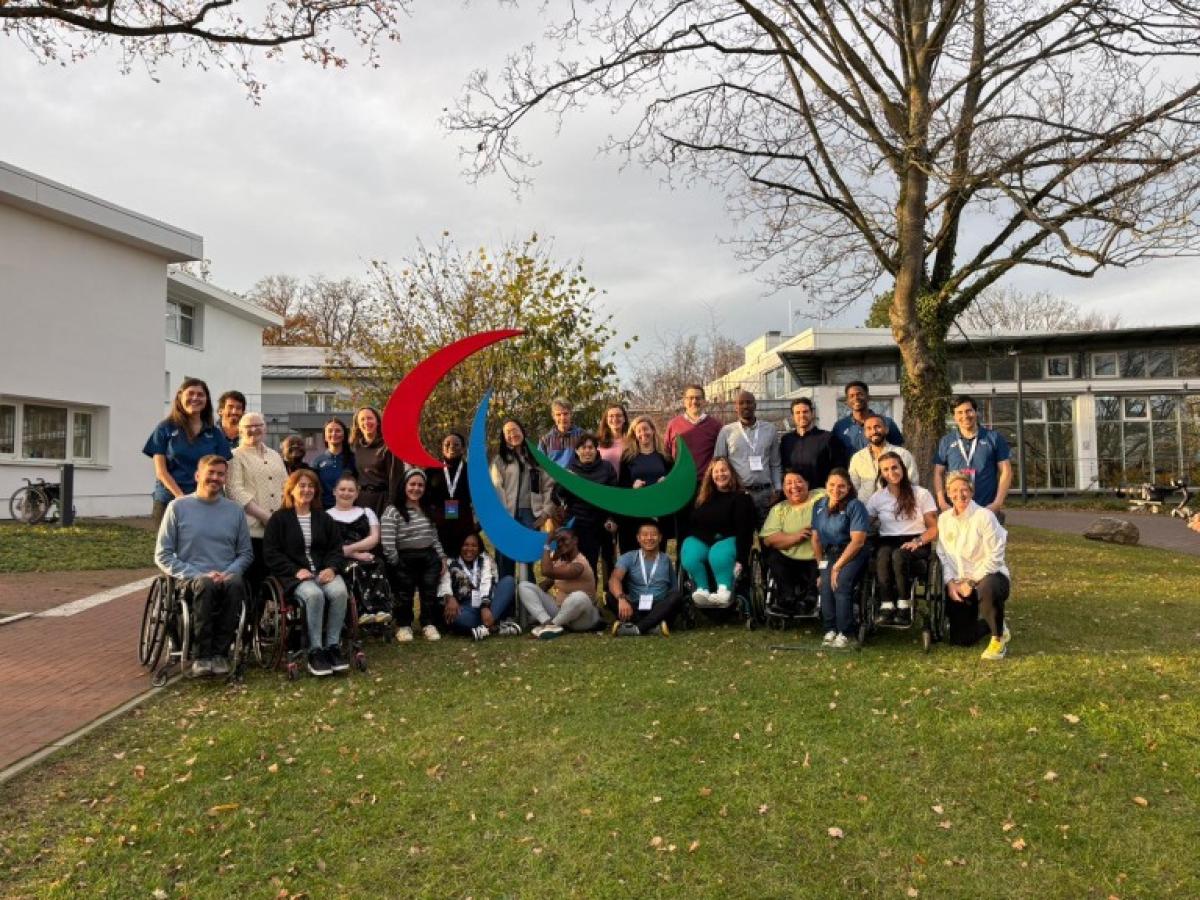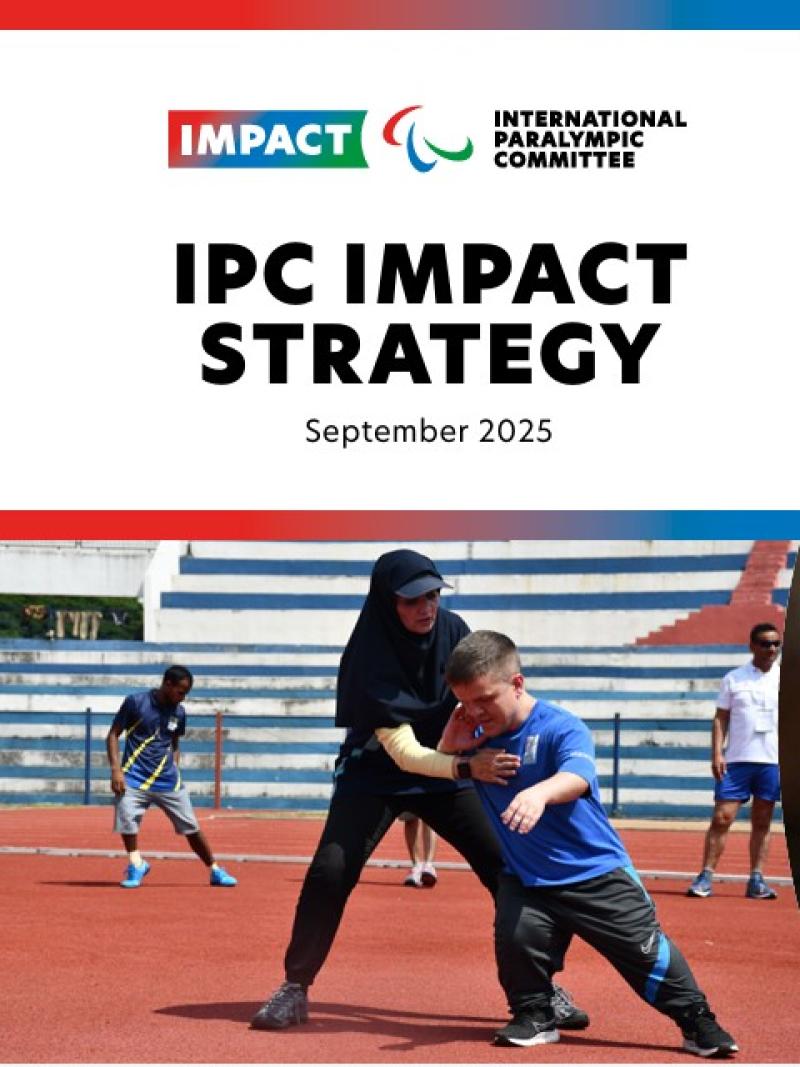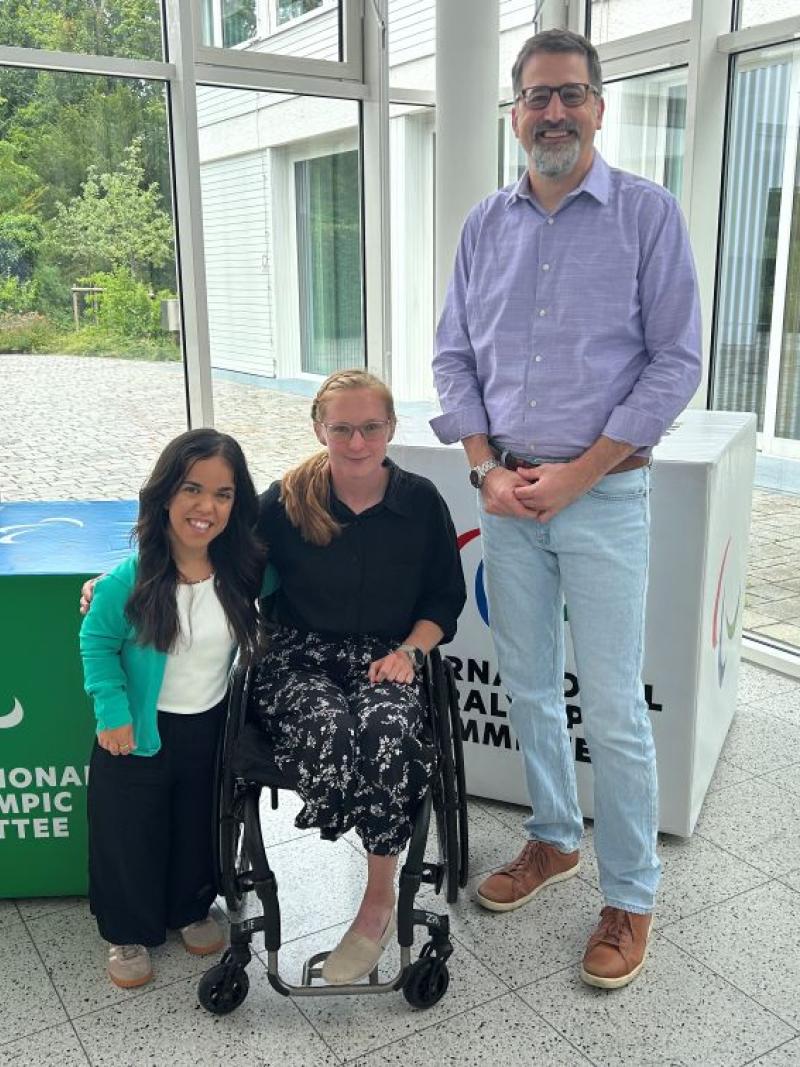IPC leadership training prepares Paralympians for life beyond elite sport
Twenty Paralympians gathered at the IPC Campus in Bonn, Germany, as part of the Para Athletes Professionals training programme. 19 Nov 2025
Twenty Paralympians gathered from 10 to 14 November 2025 at the International Paralympic Committee (IPC) Campus in Bonn, Germany, to take part in a leadership training programme designed to support their transition from elite sport to life beyond competition.
The leadership training programme, IPC Para Athlete Professionals, aims to equip retiring athletes with the tools, knowledge, and platforms they need to be confident, capable leaders. By drawing on their lived experiences and unique perspectives, the training programme aims to prepare athletes to contribute to the Paralympic Movement and beyond. Offered annually from 2025 to 2028 under the IPC’s Sport for Mobility programme, the training programme will be delivered through a blend of in-person and online learning.
For the 2025 cycle, over 80 applications were received out of which 20 Paralympians were selected from 18 countries, including 13 women, from across Asia, the Americas, Africa, Europe, and Oceania. Additionally, the cohort includes elite athletes from 13 different sports, reflecting the diversity of the Paralympic Movement. The six-month programme is expected to conclude in May 2026.
The first phase of the training, which was conducted over five days at the IPC Campus, focused on key areas such as career transition, governance, pathways to influence, leadership development, and communication and advocacy. Participants also benefited from two exclusive sessions, one delivered by IPC President Andrew Parsons, and the other by IPC Chief Executive Officer (CEO) Dr Mike Peters PLY.
IPC CEO Dr Mike Peters PLY, a two-time Paralympian, said: “I am so excited that through our Sport for Mobility programme we can offer these 20 exceptional Paralympians the tools they need to advance their careers off the field of play. We recognise that their journey does not end when competition does, and that these athletes have an equally important role to play as leaders shaping the future. I cannot wait to see how the 2025 cohort use this opportunity to drive change and excel in their careers.”
Jason Dunkerley, Canadian Para athlete and participant of the programme commented: “I think it is important that the IPC is offering a programme like this because the transition to life after sport is very difficult.
“Many of us feel lost or we are not sure what's next and it's very empowering to realise that there are opportunities and we're not alone in this journey as athletes. There are really good things that lie ahead, and we have a lot to offer, a lot to contribute.”
The 2025 Cohort
The 2025 cohort includes Paralympians from a diverse a range of sporting expertise and successes:
1. Adeline Dumapong Ancheta (Philippines) – Para powerlifting
2. Anchaya Ketkeaw (Thailand) – Para swimming
3. Brenda Sardon (Argentina) – Para rowing and Para canoe
4. Daniel Giraldo Correa (Colombia) – Para swimming
5. Danielle Liza-Jean Ellis (Canada) – Sitting volleyball
6. Emile Cadet Vuningabo (Rwanda) – Sitting volleyball
7. Hanah Ngendo Mwangi (Kenya) – Para athletics
8. Jason Joseph Dunkerley (Canada) – Para athletics
9. Jiachao Wang (China) – Para swimming and Para triathlon
10. Kelly Gallagher (Great Britain) – Para alpine skiing
11. Kerrie Louise Leonard (Ireland) – Para archery
12. María Francisca Mardones Sepulveda (Chile) – Para athletics
13. Maximillian Tan Chern (Singapore) – Para equestrian
14. Natalie Claire Alexander (Australia) – Wheelchair basketball
15. Nicholas Alexander Cummins (Great Britain) – Wheelchair rugby
16. Nour Mohammed Al Sana (Saudi Arabia) – Para athletics
17. Petra Lévay (Hungary) – Para triathlon
18. Ritah Asiimwe (Uganda) – Para badminton
19. Shanntol Annette Ince (Trinidad and Tobago) – Para swimming
20. Vianney Marlen Trejo Delgadillo (Mexico) – Para swimming
Adeline Dumapong, a powerlifter from the Philippines said: "I'm very grateful that the IPC recognises there are skills we need in order to thrive not only in sports but also outside of sports. There is an effort to help transition Paralympians to be part of the workforce.
"Being equipped with the knowledge and skills that I am learning here will enable me to contribute more to my National Paralympic Committee."







